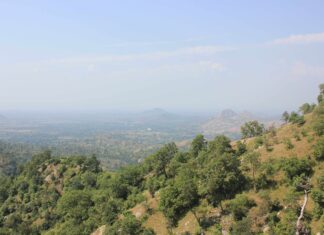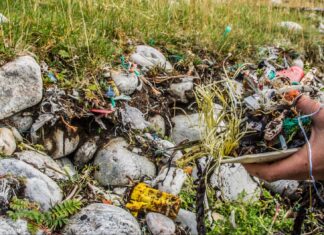Building Sustenance
The world’s cities occupy just 2% of the land use but account for 71-76% of energy-related global greenhouse gas emissions. Closer to home, India’s...
Cooling India’s Urban Poor Houses Down
Urban Poor settlements can be found in huge numbers across the country's metropolitan cities. Generally home to daily wage labourers and low-income families, these...
Bastion Shorts: Is “Odd-Even” really the answer to Delhi’s smog problem?
Delhi-NCR and most of Northern India face the recurring bane of smog and pollution every year around the months of October and November. Delhi...
Caste, Class, and Awareness—Makers and Breakers of Common Land Dispute Resolution in Rajasthan
The second half of this investigative series on Rajasthan’s Public Land Protection Cells (PLPCs) finds evidence via RTIs and interviews with locals that explain why the district administration has not been effective in spreading awareness about the Cell's functions. Implementing final orders from the PLPC seems to be largely shaped by class and caste dynamics.
How Does India See Her Oceans?
Most of our “blue v/s economy” contests stem from the fact that climate change is making the ocean more unknown to us than before.
Why Gujarat’s Women Are Yet to Accrue the Wealth of the Forest Land They...
The earnings from the land Dangi women own do not reach them: these benefits are monopolised by the men in their families.
It’s Time to Take Forest Fires Seriously
Co-authored by Ishani Pant & Aishwarya Birla
Himachal Pradesh is undoubtedly having a torturous summer; with the Shimla water crisis reaching a crescendo, the state’s...
Behind Reports of Fishers’ Demands for Euthanasia in Porbandar: Caste, Class, Religion, Livelihoods
600 small-scale Muslim fishermen in Gujarat approached the High Court to seek euthanasia because of discrimination in accessing the Gosabara wetlands.
Building the Next Generation of Environmental Lawyers with César Rodríguez-Garavito
How can the next generation of lawyers use the knowledge and skills available to them to further effective action against climate change?
Trailing A Path of Non-Anthropogenic Jurisprudence Amidst the Climate Crisis
In the age of the Anthropocene, can the world’s rapid biodiversity losses be mitigated by shifting to a non-anthropogenic legal paradigm?
















